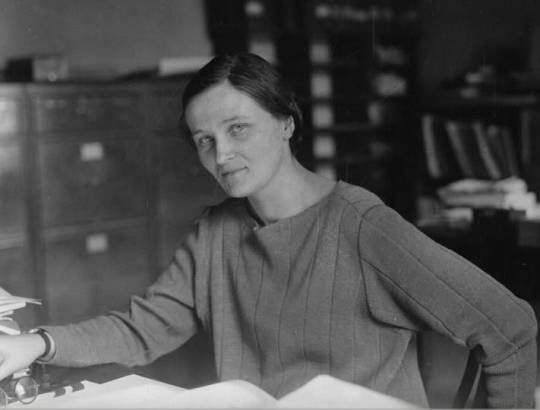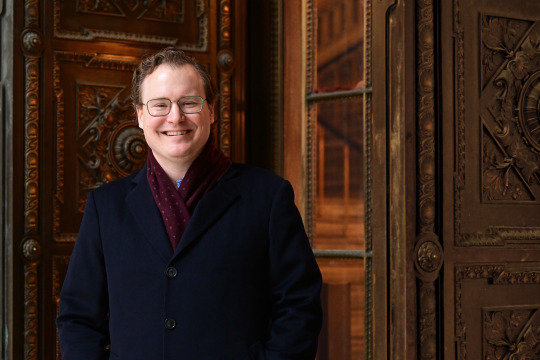#England PhD Scholarships
Explore tagged Tumblr posts
Text
A Comprehensive Guide of England PhD Scholarships

Pursuing a PhD is a dream for many, but the financial burden often acts as a significant roadblock. For students aiming to study in England, a hub of world-class universities and cutting-edge research, scholarships can be a game-changer. England PhD scholarships not only help cover tuition fees but also provide funding for living expenses, research activities, and more. This article delves into the world of England PhD scholarships, exploring their types, benefits, application processes, and top providers.
Why Pursue a PhD in England?
England is globally renowned for its prestigious universities, such as the University of Oxford, the University of Cambridge, Imperial College London, and University College London (UCL). These institutions are consistently ranked among the top universities in the world and are known for their robust research programs, experienced faculty, and access to advanced facilities.
Moreover, England’s vibrant multicultural environment, coupled with opportunities for networking and collaboration, makes it a preferred destination for aspiring PhD candidates. However, the cost of pursuing a PhD in England can be high, with tuition fees ranging between £15,000 and £35,000 per year, excluding living expenses. This is where scholarships come into play.
ALSO READ- Top Universities to Study Law in England 2025
Types of England PhD Scholarships
There are various types of scholarships available for PhD students in England, catering to both domestic and international students. These include:
1. Government-Funded Scholarships
The UK government offers several scholarship programs aimed at attracting talented students from around the world. Notable examples include:
Chevening Scholarships: Although primarily for master’s programs, Chevening occasionally funds PhD students pursuing research related to UK government priorities.
Commonwealth Scholarships: These scholarships support students from Commonwealth countries and cover tuition fees, travel expenses, and living costs.
UKRI Scholarships: Funded by UK Research and Innovation, these scholarships are specifically for research-based PhD programs and offer a stipend along with fee coverage.
2. University-Specific Scholarships
Many universities in England provide their own scholarships to support PhD students. These include:
Gates Cambridge Scholarship: Funded by the Bill and Melinda Gates Foundation, this scholarship covers the full cost of studying at the University of Cambridge, including tuition, living expenses, and additional grants for research.
Clarendon Fund: Offered by the University of Oxford, this scholarship covers tuition fees and provides a generous living stipend for international students.
President’s PhD Scholarships: Imperial College London offers fully-funded scholarships for outstanding PhD candidates across various disciplines.
3. Research Council Funding
Research councils in the UK, such as the Arts and Humanities Research Council (AHRC) and the Engineering and Physical Sciences Research Council (EPSRC), provide funding for PhD students. These scholarships often include tuition fee waivers, research grants, and maintenance stipends.
4. External Organization Scholarships
Several non-governmental organizations and private institutions fund PhD students in England. Examples include:
The Rhodes Scholarship: Though primarily for postgraduate studies, it occasionally supports PhD students at the University of Oxford.
Wellcome Trust Doctoral Studentships: These are available for students pursuing research in health-related fields.
Benefits of England PhD Scholarships
Receiving a PhD scholarship in England can provide numerous advantages, such as:
Financial Support: Scholarships often cover tuition fees, living expenses, and research costs, reducing the financial burden on students.
Access to Resources: Scholarship recipients often gain access to exclusive resources, such as research funding, workshops, and networking events.
Prestige: Being awarded a scholarship enhances a student’s academic profile and boosts their credibility in the global academic and professional arena.
Opportunities for Collaboration: Many scholarships provide opportunities to collaborate with leading researchers, industries, and organizations.
How to Apply for England PhD Scholarships
1. Research Thoroughly
Identify scholarships that align with your research interests, academic qualifications, and nationality. Explore university websites, government portals, and external funding organizations for opportunities.
2. Prepare Your Application
Scholarship applications for PhD programs are often competitive and require meticulous preparation. Key components include:
Research Proposal: A detailed and compelling research proposal outlining your objectives, methodology, and expected outcomes.
Academic Transcripts: High grades in previous degrees are often a prerequisite.
Letters of Recommendation: Strong endorsements from professors or previous employers can significantly boost your application.
Personal Statement: Highlight your academic achievements, research experience, and future goals.
3. Meet Deadlines
Most scholarships have strict deadlines, often months before the academic year begins. Ensure you submit your application well in advance.
4. Prepare for Interviews
Some scholarships require an interview as part of the selection process. Be prepared to discuss your research proposal, academic achievements, and motivation for pursuing a PhD.
Top Universities Offering PhD Scholarships in England
Here are some of the leading universities in England that provide excellent scholarship opportunities for PhD students:
University of Oxford: Known for the Clarendon Fund and various departmental scholarships.
University of Cambridge: Home to the Gates Cambridge Scholarship and several college-specific awards.
Imperial College London: Offers the President’s PhD Scholarships and various departmental scholarships.
University College London (UCL): Provides a range of scholarships, including the UCL Graduate Research Scholarships.
London School of Economics and Political Science (LSE): Offers PhD funding through LSE PhD Studentships and Research Council awards.
Challenges and Tips for Securing Scholarships
While Study in England PhD scholarships are highly beneficial, they are also highly competitive. Here are some tips to increase your chances of success:
Start Early: Begin researching and preparing your application at least a year in advance.
Tailor Your Application: Customize your application to align with the scholarship’s objectives and criteria.
Seek Guidance: Consult academic advisors, professors, or professional consultants to refine your application.
Stay Persistent: Rejections are common; don’t get discouraged and keep applying to other opportunities.
Conclusion
England PhD scholarships open doors to unparalleled academic and research opportunities in one of the world’s most prestigious education systems. From government-funded programs to university-specific awards and external grants, there is a wealth of options available for students willing to invest the time and effort. By securing a scholarship, you can not only reduce the financial burden but also gain access to resources and networks that will propel your academic and professional journey to new heights.
If you aspire to pursue a PhD in England, now is the time to explore these scholarships, prepare your application, and take the first step toward achieving your academic dreams.
ALSO READ POPULAR ARTICLES
Top Colleges in England for International Students in 2025
Level 7 Courses in New Zealand
Top 5 Universities in New Zealand for Masters in Finance
Cheapest Colleges in England
Top 10 Colleges in London, England
#study in abroad#education#study in england#study online#England PhD Scholarships#England Scholarships#PhD Scholarships#Anaad worldwide
0 notes
Text
Hexquad Cambridge University AU! Moodboards/Headcanons ✨️

A/N: A fun Au, but I'm too lazy to write it so instead I made some moodboards for each of the four pookies and some headcanons. 🎓🏫

Viktor, 26, an honourable Eastern European mix (Czech/Polish mom, Serb/Bulgarian dad)
Position: PhD in Applied Mathematics and Theoretical Physics, minor in Philosophy
Last name too difficult for Westerns to pronounce, so he is known simply as Viktor with a k at the university
He has been a prodigy since he was a child, winning innovator competitions left, right and centre
The State supported his education up until university. When his scholarship got rejected, his long-term tutor, the Dean of the Physics department, Professor Doctor Cecil B. Heimerdinger in combination with a letter of recognition from Sky's father (a prominent academic) paid his tuition in full
He offered some lectures to the Master's students and that's where he met Jayce and took him on as a research assistant to his project - Hextech.
He has certain insecurities as a result of how people viewed his disability as a child (Eastern Europe is not for the weak of heart) but with time he comes to accept it was not his business to educate or accept other people's remarks in regards to himself
Is highly respected among his peers
Also often hit on by students (can be quite oblivious to flirtations unless he knows or is interested in the other parties. For example, he always knows when Sky and Jayce are hitting on him)
Still, that level of attention from strangers annoys him so he takes his breaks in the botanic garden, pestering Sky who often could do without her crush looking over her shoulder and asking "How do these species interacts?"
His hobbies include silence, reading and sewing, believe it or not (rare, only when he has the time to really focus on it)

Jayce Talis, 25, Latino as far as he cares (his mom is Mexican, his father was supposedly English, he wouldn't know)
Position: Master in Experimental Physics
Raised by a single mom
The guilty money of his deadbeat dad paid for his tuition
Was not the brightest student in Elementary school but something just shifted in middle school and since then has acquired the moniker "Golden Boy" - valedictorian of his high school and bachelor program
Has crippling ADHD (on and off meds)
Is a big fan (has a crush) of Viktor's theories so he followed him around until the latter agreed to take him on as a research assistant (even pays him a bit)
Needs to create with his hands when he is overwhelmed so he found the only blacksmiths in Cambridge and works there on the weekends (loves it, sometimes Viktor or Mell will show up to encourage him or pass him a warm tea in the winter)
Is taken on extravagant vacations with Mel, whenever brands allow her to get a plus one and as a result has traveled a great deal of the world
Likes glitz and glamour just as much as he likes physics and getting dirty in the forge
Finds Sky Young and her passion for the outdoors difficult to understand but also hides in the botanic garden whenever a panic attack knocks on the door (they butt heads a lot but their hatred for a lot of other people unites them into an unstoppable force)
Doesn't get hit on a lot because everyone is scared of Mel (rightfully so)

Mel Medarda, 26, American heiress (both of her parents are American)
Position: PhD in Politics and International studies
Has a substantial online following and likes to nurture it. Wouldn't call herself an influencer but people do gawk and stare at her at campus.
Has never in her life known what it means to fail. Excels in every exam, every picture and every schedule she sets her sights on.
Picky with people, but charming to strangers
Likes to spend time in the lab with the boys whenever she has the time. Absorbs knowledge like it's nobody's business. Often offers a different perspective to their problems.
Her parents sent her off to England when she was 10 to a boarding school so she wouldn't grow too attached to them (they have never been a strong presence in her life). That built up a level of insecurity and anxiety within her that whenever they DO show up they're always disappointed she is not hanging out with those that could elevate her status.
Is close with her brother however (he is an aspiring politician). He likes all of her lovers/friends.
Due to everyone's attention always being on her, she TOO hides in the botanic garden to spend time with the human version of lily flowers. Also has a crush on Sky Young as much as Jayce has a crush on Viktor (they are excelling at bisexuality). Sky put a Marigold behind her ear once and told her everything will be alright and Mel's heart never quite recovered from that.
Also enjoys spending time just with Viktor. Jayce can be overwhelming at times. Viktor provides a slower pace and a more structured conversation. Brings him to galas where her parents have some level of involvement. He provides her with a lot of emotional support due to his DNA's idgafism.
Any attempt to hit on her falls flat. It's the equivalent of "baby...we couldn't even get a drink together."

Sky Young, 25, Mixed (Eastern European mom, British dad. Her mother's genes didn't even put up a fight, they just resigned)
Position: Master in Biological Studies with a focus on Plant Science
Has a full scholarship from the university. Also chose to assists the dean of bio studies (makes good money out of it) as to not burden her parents
Sky's and Viktor's moms were close when they were young so Viktor and Sky grew up relatively close whenever Sky traveled "home" for "vacation". She'd throw stones at anyone who had something to say about Viktor's disability (she never understood how they could be so mean to someone so inspiring)
Her parents nurtured her love for anything she wants to be (she's very emotionally healthy)
A shy extrovert. Needs a minute to get going. She makes acquintances very easy and can't quite figure out when sweetness borders on flirtations with those she truly cares for. (Doesn't understand how counting the moles on your childhood friend's face while holding it, putting flowers in the hair of the most gorgeous woman and hugging someone through their dark episode, is not something anyone would do)
Assigns flowers names in the garden.
Collects old volumes of classical literature
Writes short stories in her free time and bakes from time to time (designated birthday baker)
Can't drive, always walks or takes the bus (Mel would pick her up from time to time)
The only one of the four with a proper, clean apartment (they all hang out there, she makes them keys at some point)
Gets hit on a lot (she genuinely thinks people are just being nice and polite to her because she is to them)

A/N: I actually love that Au so much, if anyone has more thoughts, I'd love to hear.
#arcane#arcane series#arcane AU#hexquad#hexquad AU#sky#sky young#sky arcane#jayce#jayce arcane#jayce talist#mel#mel medarda#mel arcane#viktor#viktor arcane#jayskymelvik
48 notes
·
View notes
Text

Mike Lynch
British tech entrepreneur who sold his Autonomy software group to Hewlett-Packard and was later cleared after a long-running US fraud case
Mike Lynch, who has died aged 59 in the wreck of his yacht, was sometimes described as “Britain’s Bill Gates”. It was a huge exaggeration, but Lynch could claim two parallels with Gates: he developed world-leading technology (in his case in machine learning or AI) and, unlike so many UK scientists, he learned how to turn it into commercial success.
Such was this success that his company, Autonomy, was valued at $11bn when he sold it to Hewlett-Packard in 2011, but the fall-out from the sale would come to overshadow his technological achievements, and lead to a national debate about the circumstances in which UK citizens may be extradited to the US.
Lynch founded Autonomy with two partners in 1996. Its software enabled a computer to search huge quantities of diverse information, including phone calls, emails and videos, and recognise words. He told the Independent in 1999: “The way our technology works is to look at words and understand the relationships because it has seen a lot of content before. When it sees the word ‘star’ in the context of film, it knows it has nothing to do with the word moon. Because it works from text, it can deal with slang and with different languages.”
Autonomy became a leading company in Cambridge’s Silicon Fen cluster and established a base in San Francisco. “We knew we had to be successful in America. It was a question of ‘Go West young man, go to San Francisco and be ignored.’ They found it hard to believe that anyone from England could have anything powerful.” Lynch found what he called the “cold-hearted schmooze” to secure funding tough.
But Autonomy’s software, enabling computers to identify and match themes and ideas, and sort mammoth amounts of data, was licensed to more than 500 customers, including the US State Department and the BBC. It was listed on Nasdaq in 1998 and on the FTSE 100 in November 2000, although its value of £5.1bn would be halved within a few months in the collapse of the technology boom and accusations of over-promotion. In 2005 it bought a major US rival, Verity, for $500m.
Lynch’s profile rose with it. In 2006 he was appointed OBE for services to enterprise and the following year joined the board of the BBC. In 2011 he became a member of the government’s Council for Science and Technology, and was named the most influential person in UK IT by Computer Weekly. In 2014 he was elected a fellow of the Royal Society.
Though quietly spoken, he had a reputation for toughness, coloured by a liking for James Bond, which led to Autonomy conference rooms being named after Bond villains, and a tank of piranha fish in reception. (Lynch claimed it belonged to one of his business partners.) Challenged about a company culture where people were “a little fanatical”, he replied: “This is not the place for you if you want to work 9 to 5 and don’t love your work.”
Born in Ilford, east London, to Michael, a firefighter, and Dolores, a nurse, and brought up in Chelmsford, Lynch won a scholarship to the independent Bancroft’s school in Woodford Green, before taking a natural sciences degree at Cambridge, where his PhD in artificial neural networks, a form of machine learning, has been widely studied since.
A saxophone player and jazz lover, he set up his first business, Lynett Systems, while still a student, to produce electronic equipment for the music industry. Later he would attribute some loss of hearing to adjusting synthesisers for bands. He quoted his own experience to highlight the difficulties of finding funding for startup businesses in Britain. He finally negotiated a £2,000 loan from one of the managers of Genesis in a Soho bar.
Lynch’s next venture came out of his research. In 1991 he founded Cambridge Neurodynamics, specialising in computer-based fingerprint recognition. Then he established Autonomy.
The pinnacle of his success appeared to come in October 2011 when Autonomy was purchased by Hewlett-Packard for $11bn and Lynch made an estimated $800m. Shortly afterwards he established a new company, Invoke Capital, for investment in tech companies, and he and his wife, Angela Bacares, whom he had married in 2001, invested about £200m in Darktrace, a cybersecurity company.
But just 13 months after the Autonomy sale, HP announced an $8.8bn writedown of the assets “due to serious accounting improprieties, disclosure failures and outright misrepresentations” which it claimed had artificially inflated the company’s value. The authorities investigated, and while the UK Serious Fraud Office found insufficient evidence, in 2018 the US authorities indicted Lynch for fraud. Soon after, Autonomy’s chief financial officer, Sushovan Hussain, was found guilty of fraud and sentenced to five years in prison.
In March 2019 HP followed up with a civil action for fraud in London. Lynch spent days in the witness box as the civil action stretched over nine months. It ended in January 2022 with the judge ruling that HP had substantially succeeded, but that damages would be much less than the $5bn they had claimed.
Meanwhile the US authorities sought Lynch’s extradition on criminal charges of conspiracy and fraud. In spite of representations by senior politicians and accusations that the US authorities were attempting to exercise “extraterritorial jurisdiction”, a district judge ruled in favour of extradition.
An application for judicial review and a further appeal failed, and in May 2023 Lynch was flown to the US to be held under house arrest in San Francisco, with the prospect of a 25-year sentence.
Charged with wire fraud, securities fraud and conspiracy, on 18 March this year Lynch pleaded not guilty, alongside his former vice-president of finance, Stephen Chamberlain. On 6 June, they were found not guilty of all charges. Chamberlain died after being hit by a car on 17 August.
Lynch declared that he wanted to get back to what he loved doing – innovating. But he had little opportunity to do so. He soon embarked on a voyage to celebrate his acquittal, with family, colleagues and business associates. It ended with the sinking of his yacht, Bayesian – named after the 18th-century mathematician, Thomas Bayes, whose work on probability had informed much of his thinking – in a violent storm off the coast of Sicily.
Lynch is survived by his wife and elder daughter, Esme. Their other daughter, Hannah, was also on board the Bayesian.
🔔 Michael Richard Lynch, technology entrepreneur, born 16 June 1965; died 19 August 2024
Daily inspiration. Discover more photos at Just for Books…?
7 notes
·
View notes
Text
𝐓𝐡𝐞𝐦 𝐂𝐡𝐚𝐧𝐠𝐞𝐬 (𝐜𝐡𝐚𝐩𝐭𝐞𝐫 𝟏𝟐)

Pairing: Joe Goldberg x Rhys Montrose Summary: Joe could have been obsessed with Guinevere Beck. Instead, the universe introduced him to Rhys Montrose. Main tags: AU - Different First Meeting, Hurt/Comfort, Fluff and Angst, Romance, Intimacy, Trauma (processing?) Completion Status: in progress... Chapter 1 - Chapter 2 - Chapter 3 - Chapter 4 - Chapter 5 - Chapter 6 - Chapter 7 - Chapter 8 - Chapter 9 - Chapter 10 - Chapter 11
Chapter 12:
“Did you always want to own a bookstore?”
“I’d say I’ve always wanted to work with books.”
The two men were lying on their stomachs, side to side, arms folded beneath their heads. One was resting his eyes, worn out by the previous rounds, yet not opposed to testing his limits, the other was fighting to keep his eyes open, admiring the features of his partner. Joe did not need to see; he could hear the genuine interest —and the fatigue setting in. He carried on his explanation to satisfy the author’s curiosity. He sounded just as tired.
“When I was younger, I wanted to be a professor. A literature professor. Have my own class of students who would’ve chosen my course just because they heard it was easy and bore them for two hours with a lecture on the meaning of…blue curtains in books or something.”
The detailed scene earned the bookworm a soft chuckle from the writer.
“I could be wrong but you sound quite inspired by this life perspective. Why is it you’re selling books, then, instead of…teaching their secrets?”
A bitter laugh came in response.
“Well, Uncle Sam isn’t as generous as the Queen of England regarding the cost of education, Rhys.”
The cost of going to college was undoubtedly the main reason preventing millions of people from pursuing their education in the United States. Scholarships and financial aid were not guaranteed and did not cover the cost of a bachelor’s degree. [Imagine doing a PhD in this economy.] A loan could provide the remaining sum but would inevitably lead to a debt to reimburse in a dozen years, regardless of the completion of the degree. Most families would save money in advance to relieve their children in case the time came, but Joe knew his parents could not afford to spare money.
Money could have, though.
Continue to read...
5 notes
·
View notes
Note
Misha attended Northfield Mount Hermon school in Massachusetts. A very fancy (expensive) prep school. But Misha only went there on a local poor kid scholarship, he didn't pay. And it was from eighth or ninth grade onward, so he would've been at least 12 or 13 before he experienced the wealthy side of New England life. He's said that he met Darius there when he was 12 (and Vicki there when he was 15) and Darius used to bring an extra lunch to school for Misha because Misha didn't have much to eat. Darius also gave Misha clothes because he didn't have much in that regard either. Prior to getting that scholarship, Misha and his little brother and mom were homeless, living in a tent in the woods at one point, in an office with no windows at another. Misha and Sasha attended various public elementary schools. As I understand it, Misha also got a scholarship to study at the University of Chicago after high school. But he did also say that he and Vicki were "hundreds of thousands" of dollars in debt before he got the gig on Supernatural (much of that I assume was student debt, as they both got BA's from UofC and Vicki went on to do a Masters and PhD too. Expensive!) The White House internship was also unpaid (until 2022 when Pres Biden signed a new spending bill that set aside money to pay WH interns. But when Misha did his internship in the 90s it was unpaid.) I don't think he met his (very rich) friend Phillip until after college, sometime in his 20s.
yeah, this makes sense (even if I have no idea who Philip is). idk if you are the same anon from the earlier ask but everything you wrote just confirms Misha didn't grow up wealthy. Going to a fancy private school isn't the same as being rich. I think Misha's college diary shows very well what his attitude to those rich privileged kids was like at the time. He certainly didn't feel like he belonged with them in any way.
22 notes
·
View notes
Text

Niko Munz
"My research interests lie in late medieval and early modern art, spanning Germany, the Low Countries, France, Italy and England. My current research project, entitled 'Image Rights', looks at the legal resonances of late medieval facial representation. It seeks to prove that pre-modern ‘representation’ had a double meaning largely forgotten by modern scholarship: the classic symbolic operation of one thing replacing another (in writing, pictures, etc.); but also the juridical dimension of substitution binding the exchanged components together legally.
Images of individuals have had a long history of lawful significance, dating to the Roman ‘right to representations’. Painted portraits, however, emerged only c. 1350 and were used initially for subjects with legitimate claims to portrayals (like monarchs). My focus is on the relatively neglected early instances of painted facial representation in German-speaking regions. The new portrait genre prospered in German free imperial cities with perhaps greater intensity than in any other urban environment. From the late 1300s, German law also underwent dramatic transformations which reshaped the individual’s legal autonomy. For the image-commissioning population—often educated or actively involved in law—and for artists alike, the new portrait genre established itself within a web of rights, controls, and official capacities. My research therefore takes into consideration the various active legal-visual dimensions across material culture (seals, letters, coins) to conceptualise the early portrait as a complex visual sign, uniting text, insignia and figure.
My PhD thesis, 'From Shrine to Room: An Interpretation of the House Interior in Early Netherlandish Panel Painting c.1400-1450' (2021), looks at the introduction of the 'realistic' domestic interior into northern painting. Closely analysing composition and form, reception, media, material culture, and the motivations and influences of various religious and social contexts, it interrogates the moment painters gave the religious image an earthly setting. My case studies range from late medieval pre-Eyckian painting’s ‘micro-architectural’ tendencies to the mid-15th-century emergence of the ‘milieu portrait’ in Petrus Christus’ oeuvre; when pictorial background was converted into social background. These developments help us to understand the emergence of the interior scene, that significant genre, which continues to serve multiple purposes in image-making right up to the present day.
As well as continuing to publish 17th-century primary materials relating to the history of the royal collection––most recently, on Artemisia Gentileschi's time in England––I work on a long-term collaborative digital project on Charles I, cited below. It provides a 3D reconstruction of several rooms at Whitehall Palace c. 1639 and republishes the collection inventories online, tracing the locations of many significant early modern paintings previously thought lost. I also have a strong interest in the historical theory and historiography of art and am currently preparing a publication on early Renaissance pictorial space."
Geschichte und Theorie des Scheidens, d.h. einer Trennung, die mit Assoziation und Austausch einhergeht: Niko Munz arbeitet dazu, Niko Munz muss nach Frankfurt eingeladen werden.
2 notes
·
View notes
Photo




Book Recommendations: “Wednesday” Read-Alikes
Bunny by Mona Awad
Samantha Heather Mackey couldn't be more of an outsider in her small, highly selective MFA program at New England's Warren University. A scholarship student who prefers the company of her dark imagination to that of most people, she is utterly repelled by the rest of her fiction writing cohort--a clique of unbearably twee rich girls who call each other "Bunny," and seem to move and speak as one.
But everything changes when Samantha receives an invitation to the Bunnies' fabled "Smut Salon," and finds herself inexplicably drawn to their front door--ditching her only friend, Ava, in the process. As Samantha plunges deeper and deeper into the Bunnies' sinister yet saccharine world, beginning to take part in the ritualistic off-campus "Workshop" where they conjure their monstrous creations, the edges of reality begin to blur. Soon, her friendships with Ava and the Bunnies will be brought into deadly collision.
Hex by Rebecca Dinerstein Knight
Nell Barber, an expelled PhD candidate in biological science, is exploring the fine line between poison and antidote, working alone to set a speed record for the detoxification of poisonous plants. Her mentor, Dr. Joan Kallas, is the hero of Nell's heart. Nell frequently finds herself standing in the doorway to Joan's office despite herself, mesmerized by Joan's elegance, success, and spiritual force.
Surrounded by Nell's ex, her best friend, her best friend's boyfriend, and Joan's buffoonish husband, the two scientists are tangled together at the center of a web of illicit relationships, grudges, and obsessions. All six are burdened by desire and ambition, and as they collide on the university campus, their attractions set in motion a domino effect of affairs and heartbreak.
Meanwhile, Nell slowly fills her empty apartment with poisonous plants to study, and she begins to keep a series of notebooks, all dedicated to Joan. She logs her research and how she spends her days, but the notebooks ultimately become a painstaking map of love. In a dazzling and unforgettable voice, Rebecca Dinerstein Knight has written a spellbinding novel of emotional and intellectual intensity.
A Lesson in Vengeance by Victoria Lee
Felicity Morrow is back at Dalloway School.
Perched in the Catskill mountains, the centuries-old, ivy-covered campus was home until the tragic death of her girlfriend. Now, after a year away, she’s returned to graduate. She even has her old room in Godwin House, the exclusive dormitory rumored to be haunted by the spirits of five Dalloway students—girls some say were witches. The Dalloway Five all died mysteriously, one after another, right on Godwin grounds.
Witchcraft is woven into Dalloway’s history. The school doesn’t talk about it, but the students do. In secret rooms and shadowy corners, girls convene. And before her girlfriend died, Felicity was drawn to the dark. She’s determined to leave that behind her now; all Felicity wants is to focus on her senior thesis and graduate. But it’s hard when Dalloway’s occult history is everywhere. And when the new girl won’t let her forget.
It’s Ellis Haley’s first year at Dalloway, and she’s already amassed a loyal following. A prodigy novelist at seventeen, Ellis is a so-called “method writer.” She’s eccentric and brilliant, and Felicity can’t shake the pull she feels to her. So when Ellis asks Felicity for help researching the Dalloway Five for her second book, Felicity can’t say no. Given her history with the arcane, Felicity is the perfect resource. And when history begins to repeat itself, Felicity will have to face the darkness in Dalloway–and in herself.
Skin of the Sea by Natasha Bowen
A way to survive. A way to serve. A way to save.
Simi prayed to the gods, once. Now she serves them as Mami Wata--a mermaid--collecting the souls of those who die at sea and blessing their journeys back home.
But when a living boy is thrown overboard, Simi goes against an ancient decree and does the unthinkable--she saves his life. And punishment awaits those who dare to defy the gods.
To protect the other Mami Wata, Simi must journey to the Supreme Creator to make amends. But all is not as it seems. There's the boy she rescued, who knows more than he should. And something is shadowing Simi, something that would rather see her fail . . .
Danger lurks at every turn, and as Simi draws closer, she must brave vengeful gods, treacherous lands, and legendary creatures. Because if she fails, she risks not only the fate of all Mami Wata, but also the world as she knows it.
This is the first volume in the “Skin of the Sea” series.
#fiction#contemporary fiction#Magical Realism#horror#fantasy#readalikes#Book Recommendations#book recs#Reading Recs#reading recommendations#Library Books#TBR pile#tbrpile#to read#Want To Read#Booklr#book tumblr#book blog#library blog
4 notes
·
View notes
Text

In the movie Highlander, Scottish actor Sean Connery playing an Egyptian with the last name Ramirez asks the question “Are the stars just pin holes in the curtain of night? Who knows?” The scene takes place in the middle of the sixteen century, and Polish astronomer Nicolas Copernicus already had a pretty good idea about what stars were and that Earth revolved around ours. But when it comes to what stars are made of, it wouldn’t be until the early twentieth century that astrophysicist Cecilia Payne figured it out. And because she was a woman, the establishment said yeah you’re full of shit Cecilia. STFU.
Born in Buckinghamshire, England, in 1900, the composition of those totally not night curtain pin holes was the subject of Payne’s 1925 PhD thesis, which she had to do in America. She had to go to the United States because, despite completing all her courses (on a full ride scholarship) at Cambridge University, they wouldn’t give her a degree. Why not? Because they were sexist assnuggets. Cambridge didn’t grant degrees to women until 1948.
And so, Payne went to the Harvard College Observatory, a leading force in the study of astronomy at the time, which wouldn’t grant her a PhD either because boy’s club bullshit. But she did get her doctorate at their sister institution, Radcliffe College, which is now part of Harvard University. Dr. Payne became the first person of any gender to earn an astronomy doctorate via the Harvard Observatory.
And that doctoral thesis told us what the universe is made of.
Using spectral analysis, she said yeah there is all sorts of stuff in these stars like silicon and carbon and other metals in about the same relative amounts as on Earth. But there is also a lot more helium, and an absolute assload of hydrogen. It was Cecilia Payne who discovered that hydrogen is by far the most abundant element in the universe. And a dozen years later that element would blow the shit out of the airship Hindenburg, but that’s another story.
Anyfuckingway, the men at Harvard literally told her to downplay the shit out of her results because they couldn’t have a woman unlocking the secrets of the universe. Henry Russell, a professor of astronomy at Princeton, said yeah Cecilia your data is fucked this is all wrong. Russell was a firm believer in the idea that stars were basically made of all the same shit as our planet and in the same relative amounts, just nuclear hellfire hotter. Guess he didn’t like his prevailing beliefs to be questioned by a twenty-five-year-old woman.
And because Russell was a total cockwagon about it, Payne was forced to significantly water down her conclusions in her thesis. She relied upon the male establishment for approval and employment and didn’t have much choice in the matter.
After completing her PhD, Payne moved into a different area of astronomical study, and then Russell kinda stole her work.
Four years later, in 1929, Henry Russell published On The Composition of the Sun’s Atmosphere, and his was the only name on the paper. I say Russell only kind of stole her work because he did cite her by name several times in the paper, but he definitely stole her glory. Russell had been a leading force in telling Payne to shut the fuck up and basically say her conclusions were all wrong. Then he went and said yeah those conclusions were right our sun is mostly hydrogen. And he became the guy famous for it. Fucker.
Dr. Cecilia Payne continued to make many more contributions to the study of astronomy, and would eventually be granted a full professorship at Harvard, the first woman to be honored with such a title. She is recognized as having broken through a number of glass ceilings for women in astronomy, inspiring many to pursue careers in science.
Cecilia Payne died in 1979, but it would be decades before the world came to recognize her for her discovery of what the universe is made of.
0 notes
Text
cv
born in Hualien, Taiwan
lives and works in London, UK
───────
education
2020 - * * * * PhD Fine Art, Slade School of Fine Art, University College London
2015 - 2017 MFA Fine Art, Goldsmiths, University of London
2010 - 2011 Visiting Study, BA Fine Art, Goldsmiths, University of London
2008 - 2012 BFA Fine Art, National Taiwan Normal University
fund
2023 Art Theory, Government Scholarship for Study Abroad, Ministry of Education, Taiwan
2020 Visual Art, Covid Fund for Artist, Arts Council England, UK
2015 Media Art, Government Scholarship for Study Abroad, Ministry of Education, Taiwan
2010 Art and Design, Ministry Fellowship for Visiting Study, Ministry of Education, Taiwan
talk
2024 Slade Art Research Centre, University College London, UK
2024 Department of Arts Industry, National Taitung University, Taiwan
2022 Department of Fine Arts, National Taiwan Normal University, Taiwan
2021 Aesthetics and Art Program, Tainan Community University, Taiwan
qualification
2019 Art, Exceptional Talent, Global Talent Visa, Arts Council England, UK
prize
2018 Finalist, Bloomberg New Contemporaries, UK
2017 Shortlist, Red Mansion Art Prize, UK
residency
2019 Nakanojo Isemachi, Gunma, Japan
2017 Joya Arte + Ecología, Andalusia, Spain
2017 Merz Barn, Lake District, UK
collection
2023 “Postcards from Nowhere” by Private Collection, London, UK
2020 “Déjà Vu” by Art Bank Taiwan, National Taiwan Museum of Fine Arts, Taichung, Taiwan
2020 “Opt-in & Opt-out” by Yamamoto Keiko Rochaix Gallery, London, UK
2019 “The Road on Which the Sun Never Sets” by Private Collection, London, UK
public project
2020 Ryan Gander: Difficult Truths to Live Inside - Trouble with Time, British Art Talks, Paul Mellon Centre for Studies in British Art, London, UK
exhibition
2024 Luna Mare: From the Shaping of the Other to Reflections on the Freedom of Movement, Art Research Exhibition, Slade Art Research Centre, London, UK
2024 Boundaries Unbound: An Artist’s Material Exploration of Global Freedom of Movement, Solo, Slade Art Research Centre, London, UK 2020 Taiwan-Japan Artist Exchange Exhibition - the Moment of the Movement, Curated by Lu Chen, Tamsui Historical Museum, New Taipei, Taiwan
2020 Under A Flag, Dual Exhibition with Anthony N'Goya, Yamamoto Keiko Rochaix Gallery, London, UK
2019 Nakanojo Biennial, Gunma, Japan
2019 The Wind and Art, Flag Project, Busan South Port Seaside Art Festival, Busan, Korea
2018 Bloomberg New Contemporaries II, South London Gallery, London, UK
2018 Bloomberg New Contemporaries I, Liverpool Biennial, Liverpool, UK
2018 Sisyphus Version 20.18, Curated by Francis Almendárez, Yi-Chun Lin and Hsuan Wang, National Taiwan Museum of Fine Arts, Taichung, Taiwan
2018 Language Strategies, Curated by Alice Woodhouse, Austrian Cultural Forum London, London, UK
2017 No Turning Back, Curated by Aditi Anand & Sue McAlpine, Migration Museum Project, London, UK
2017 Glaze, Curated by Isobel Atacus, The Icing Room, London, UK
2017 Deptford X Fringe, Dual Exhibition with Laura Fox, Mughead Coffee Gallery, London, UK
2017 Beyond the Borders, The Crypt Gallery, London, UK
2017 Flock 2017, Invited by Carmen Cortés Martin, GX Gallery, London, UK
2017 Goldsmiths MFA Degree Show, Goldsmiths College, London, UK
2017 Up in the Air, Open Call by Goldsmiths MFA Curating, Goldsmiths College, London, UK
2017 The Xenophobia of Time?, Curated by Ying-Hsuan Tai, Clerkenwell Gallery, London, UK
2017 Fair Booth Trial, Curated by Marcel Darienzo, Carousel Art, London, UK
2017 Transit Border - A Way to Utopia?, Curated By Jayi Fu, Enclave Project Lab, London, UK
2017 Start-Up: Slow Accident, Curated by Eline Kersten & Paul Devens, Nieuw Dakota Gallery, Amsterdam, Nederland
2016 Goldsmiths MFA Interim Show, Goldsmiths College, London, UK
2016 Redirection, Harts Lane Gallery, London, UK
2015 The Fifth Dimension, Curated by Chih-Yung Chiu, NTUA Gallery, New Taipei, Taiwan
2014 Disturbance, Curated by Yung-Hsien Chen, Teh-Chun Gallery, Taipei, Taiwan
2013 Post-Community, Curated by Pey-Chwen Lin, 435 Art Zone, New Taipei, Taiwan
2011 Someday Project, Canada Water Studio, London, UK
2011 Jarred on My Nerves, The Old Police Station, London, UK
2010 New Generation, A-Zhi-Bao Art Space, Hualien, Taiwan
0 notes
Video
youtube
17 PhDs, Fully funded, scholarships at Newcastle University, England- St...
0 notes
Text
Exploring the history of data-driven arguments in public life
New Post has been published on https://sunalei.org/news/exploring-the-history-of-data-driven-arguments-in-public-life/
Exploring the history of data-driven arguments in public life

Political debates today may not always be exceptionally rational, but they are often infused with numbers. If people are discussing the economy or health care or climate change, sooner or later they will invoke statistics.
It was not always thus. Our habit of using numbers to make political arguments has a history, and William Deringer is a leading historian of it. Indeed, in recent years Deringer, an associate professor in MIT’s Program in Science, Technology, and Society (STS), has carved out a distinctive niche through his scholarship showing how quantitative reasoning has become part of public life.
In his prize-winning 2018 book “Calculated Values” (Harvard University Press), Deringer identified a time in British public life from the 1680s to the 1720s as a key moment when the practice of making numerical arguments took hold — a trend deeply connected with the rise of parliamentary power and political parties. Crucially, freedom of the press also expanded, allowing greater scope for politicians and the public to have frank discussions about the world as it was, backed by empirical evidence.
Deringer’s second book project, in progress and under contract to Yale University Press, digs further into a concept from the first book — the idea of financial discounting. This is a calculation to estimate what money (or other things) in the future is worth today, to assign those future objects a “present value.” Some skilled mathematicians understood discounting in medieval times; its use expanded in the 1600s; today it is very common in finance and is the subject of debate in relation to climate change, as experts try to estimate ideal spending levels on climate matters.
“The book is about how this particular technique came to have the power to weigh in on profound social questions,” Deringer says. “It’s basically about compound interest, and it’s at the center of the most important global question we have to confront.”
Numbers alone do not make a debate rational or informative; they can be false, misleading, used to entrench interests, and so on. Indeed, a key theme in Deringer’s work is that when quantitiative reasoning gains more ground, the question is why, and to whose benefit. In this sense his work aligns with the long-running and always-relevant approach of the Institute’s STS faculty, in thinking carefully about how technology and knowledge is applied to the world.
“The broader culture more has become attuned to STS, whether it’s conversations about AI or algorithmic fairness or climate change or energy, these are simultaneously technical and social issues,” Deringer says. “Teaching undergraduates, I’ve found the awareness of that at MIT has only increased.” For both his research and teaching, Deringer received tenure from MIT earlier this year.
Dig in, work outward
Deringer has been focused on these topics since he was an undergraduate at Harvard University.
“I found myself becoming really interested in the history of economics, the history of practical mathematics, data, statistics, and how it came to be that so much of our world is organized quantitatively,” he says.
Deringer wrote a college thesis about how England measured the land it was seizing from Ireland in the 1600s, and then, after graduating, went to work in the finance sector, which gave him a further chance to think about the application of quantification to modern life.
“That was not what I wanted to do forever, but for some of the conceptual questions I was interested in, the societal life of calculations, I found it to be a really interesting space,” Deringer says.
He returned to academia by pursuing his PhD in the history of science at Princeton University. There, in his first year of graduate school, in the archives, Deringer found 18th-century pamphlets about financial calculations concering the value of stock involved in the infamous episode of speculation known as the South Sea Bubble. That became part of his dissertation; skeptics of the South Sea Bubble were among the prominent early voices bringing data into public debates. It has also helped inform his second book.
First, though, Deringer earned his doctorate from Princeton in 2012, then spent three years as a Mellon Postdoctoral Research Fellow at Columbia University. He joined the MIT faculty in 2015. At the Institute, he finished turning his dissertation into the “Calculated Values” book — which won the 2019 Oscar Kenshur Prize for the best book from the Center for Eighteenth-Century Studies at Indiana University, and was co-winner of the 2021 Joseph J. Spengler Prize for best book from the History of Economics Society.
“My method as a scholar is to dig into the technical details, then work outward historically from them,” Deringer says.
A long historical chain
Even as Deringer was writing his first book, the idea for the second one was taking root in his mind. Those South Sea Bubble pamphets he had found while at Princeton incorporated discounting, which was intermittently present in “Calculated Values.” Deringer was intrigued by how adept 18th-century figures were at discounting.
“Something that I thought of as a very modern technique seemed to be really well-known by a lot of people in the 1720s,” he says.
At the same time, a conversation with an academic colleague in philosophy made it clear to Deringer how different conclusions about discounting had become debated in climate change policy. He soon resolved to write the “biography of a calculation” about financial discounting.
“I knew my next book had to be about this,” Deringer says. “I was very interested in the deep historical roots of discounting, and it has a lot of present urgency.”
Deringer says the book will incorporate material about the financing of English cathedrals, the heavy use of discounting in the mining industry during the Industrial Revolution, a revival of discounting in 1960s policy circles, and climate change, among other things. In each case, he is carefully looking at the interests and historical dynamics behind the use of discounting.
“For people who use discounting regularly, it’s like gravity: It’s very obvious that to be rational is to discount the future according to this formula,” Deringer says. “But if you look at history, what is thought of as rational is part of a very long historical chain of people applying this calculation in various ways, and over time that’s just how things are done. I’m really interested in pulling apart that idea that this is a sort of timeless rational calculation, as opposed to a product of this interesting history.”
Working in STS, Deringer notes, has helped encourage him to link together numerous historical time periods into one book about the numerous ways discounting has been used.
“I’m not sure that pursuing a book that stretches from the 17th century to the 21st century is something I would have done in other contexts,” Deringer says. He is also quick to credit his colleagues in STS and in other programs for helping create the scholarly environment in which he is thriving.
“I came in with a really amazing cohort of other scholars in SHASS,” Deringer notes, referring to the MIT School of Humanities, Arts, and Social Sciences. He cites others receiving tenure in the last year such as his STS colleague Robin Scheffler, historian Megan Black, and historian Caley Horan, with whom Deringer has taught graduate classes on the concept of risk in history. In all, Deringer says, the Institute has been an excellent place for him to pursue interdisciplinary work on technical thought in history.
“I work on very old things and very technical things,” Deringer says. “But I’ve found a wonderful welcoming at MIT from people in different fields who light up when they hear what I’m interested in.”
0 notes
Text
Exploring the history of data-driven arguments in public life
New Post has been published on https://thedigitalinsider.com/exploring-the-history-of-data-driven-arguments-in-public-life/
Exploring the history of data-driven arguments in public life


Political debates today may not always be exceptionally rational, but they are often infused with numbers. If people are discussing the economy or health care or climate change, sooner or later they will invoke statistics.
It was not always thus. Our habit of using numbers to make political arguments has a history, and William Deringer is a leading historian of it. Indeed, in recent years Deringer, an associate professor in MIT’s Program in Science, Technology, and Society (STS), has carved out a distinctive niche through his scholarship showing how quantitative reasoning has become part of public life.
In his prize-winning 2018 book “Calculated Values” (Harvard University Press), Deringer identified a time in British public life from the 1680s to the 1720s as a key moment when the practice of making numerical arguments took hold — a trend deeply connected with the rise of parliamentary power and political parties. Crucially, freedom of the press also expanded, allowing greater scope for politicians and the public to have frank discussions about the world as it was, backed by empirical evidence.
Deringer’s second book project, in progress and under contract to Yale University Press, digs further into a concept from the first book — the idea of financial discounting. This is a calculation to estimate what money (or other things) in the future is worth today, to assign those future objects a “present value.” Some skilled mathematicians understood discounting in medieval times; its use expanded in the 1600s; today it is very common in finance and is the subject of debate in relation to climate change, as experts try to estimate ideal spending levels on climate matters.
“The book is about how this particular technique came to have the power to weigh in on profound social questions,” Deringer says. “It’s basically about compound interest, and it’s at the center of the most important global question we have to confront.”
Numbers alone do not make a debate rational or informative; they can be false, misleading, used to entrench interests, and so on. Indeed, a key theme in Deringer’s work is that when quantitiative reasoning gains more ground, the question is why, and to whose benefit. In this sense his work aligns with the long-running and always-relevant approach of the Institute’s STS faculty, in thinking carefully about how technology and knowledge is applied to the world.
“The broader culture more has become attuned to STS, whether it’s conversations about AI or algorithmic fairness or climate change or energy, these are simultaneously technical and social issues,” Deringer says. “Teaching undergraduates, I’ve found the awareness of that at MIT has only increased.” For both his research and teaching, Deringer received tenure from MIT earlier this year.
Dig in, work outward
Deringer has been focused on these topics since he was an undergraduate at Harvard University.
“I found myself becoming really interested in the history of economics, the history of practical mathematics, data, statistics, and how it came to be that so much of our world is organized quantitatively,” he says.
Deringer wrote a college thesis about how England measured the land it was seizing from Ireland in the 1600s, and then, after graduating, went to work in the finance sector, which gave him a further chance to think about the application of quantification to modern life.
“That was not what I wanted to do forever, but for some of the conceptual questions I was interested in, the societal life of calculations, I found it to be a really interesting space,” Deringer says.
He returned to academia by pursuing his PhD in the history of science at Princeton University. There, in his first year of graduate school, in the archives, Deringer found 18th-century pamphlets about financial calculations concering the value of stock involved in the infamous episode of speculation known as the South Sea Bubble. That became part of his dissertation; skeptics of the South Sea Bubble were among the prominent early voices bringing data into public debates. It has also helped inform his second book.
First, though, Deringer earned his doctorate from Princeton in 2012, then spent three years as a Mellon Postdoctoral Research Fellow at Columbia University. He joined the MIT faculty in 2015. At the Institute, he finished turning his dissertation into the “Calculated Values” book — which won the 2019 Oscar Kenshur Prize for the best book from the Center for Eighteenth-Century Studies at Indiana University, and was co-winner of the 2021 Joseph J. Spengler Prize for best book from the History of Economics Society.
“My method as a scholar is to dig into the technical details, then work outward historically from them,” Deringer says.
A long historical chain
Even as Deringer was writing his first book, the idea for the second one was taking root in his mind. Those South Sea Bubble pamphets he had found while at Princeton incorporated discounting, which was intermittently present in “Calculated Values.” Deringer was intrigued by how adept 18th-century figures were at discounting.
“Something that I thought of as a very modern technique seemed to be really well-known by a lot of people in the 1720s,” he says.
At the same time, a conversation with an academic colleague in philosophy made it clear to Deringer how different conclusions about discounting had become debated in climate change policy. He soon resolved to write the “biography of a calculation” about financial discounting.
“I knew my next book had to be about this,” Deringer says. “I was very interested in the deep historical roots of discounting, and it has a lot of present urgency.”
Deringer says the book will incorporate material about the financing of English cathedrals, the heavy use of discounting in the mining industry during the Industrial Revolution, a revival of discounting in 1960s policy circles, and climate change, among other things. In each case, he is carefully looking at the interests and historical dynamics behind the use of discounting.
“For people who use discounting regularly, it’s like gravity: It’s very obvious that to be rational is to discount the future according to this formula,” Deringer says. “But if you look at history, what is thought of as rational is part of a very long historical chain of people applying this calculation in various ways, and over time that’s just how things are done. I’m really interested in pulling apart that idea that this is a sort of timeless rational calculation, as opposed to a product of this interesting history.”
Working in STS, Deringer notes, has helped encourage him to link together numerous historical time periods into one book about the numerous ways discounting has been used.
“I’m not sure that pursuing a book that stretches from the 17th century to the 21st century is something I would have done in other contexts,” Deringer says. He is also quick to credit his colleagues in STS and in other programs for helping create the scholarly environment in which he is thriving.
“I came in with a really amazing cohort of other scholars in SHASS,” Deringer notes, referring to the MIT School of Humanities, Arts, and Social Sciences. He cites others receiving tenure in the last year such as his STS colleague Robin Scheffler, historian Megan Black, and historian Caley Horan, with whom Deringer has taught graduate classes on the concept of risk in history. In all, Deringer says, the Institute has been an excellent place for him to pursue interdisciplinary work on technical thought in history.
“I work on very old things and very technical things,” Deringer says. “But I’ve found a wonderful welcoming at MIT from people in different fields who light up when they hear what I’m interested in.”
#ai#amazing#approach#Arts#awareness#book#change#circles#classes#climate#climate change#college#data#data-driven#details#dynamics#Economics#economy#energy#English#Environment#Faculty#finance#financial#Future#Global#gravity#Health#Health care#History
0 notes
Text
Ph.D Scholarships in England 2023-2024
Ph.D Scholarships in England 2023-2024. #PHD #Ph.DScholarshipsinEngland
Ph.D Scholarships for England: The pursuit of a PhD is a journey of intellectual curiosity and rigorous scholarship. England, with its rich academic heritage and cutting-edge research facilities, offers a plethora of scholarship opportunities for the 2023-2024 academic year. These scholarships provide a pathway for aspiring academics to delve into research without the burden of financial…

View On WordPress
0 notes
Text
Cheapest Universities in UK for International Students | Global Edge
Apply to cheap universities in London. Learn more about cheapest universities in UK for international students. Apply to universities in London cheap in tuition fees.The modern age of hyper-globalisation has created new opportunities for everyone. However, the competition is fiercer across all domains, including education. Completing higher education from a reputed international university makes one eligible for well-paid employment opportunities. The United Kingdom is home to numerous top-ranked international universities, including the University of Oxford and the University of Cambridge. This makes it a popular education hub for international students. However, it’s tough to find universities in London cheap.Let’s be honest. A higher education degree from well-recognised universities can cost a fortune. Many deserving students might not have the financial backing to enrol in a program of their choice. However, some reputed universities offer quality education to international students within their budgets. You can easily find cheap universities in London and other cities in England. It’s important to take recommendations from study abroad consultants before applying for an international university. Let’s take a quick look into the most affordable universities in the UK for international students.Founded in 1839, the University of Chester is a public university in Chester city of England. It was initially established as a training college for teachers. However, later it got the recognition of a university. Some of the most popular programmes offered at this university include Undergraduate, Postgraduate, MA Social Work, MBA, MA Art Therapy, and MSc Psychiatry. This university is among the cheapest universities in UK for international students.The Leeds Beckett University is a public university based in Leeds, West Yorkshire, England. It was established in 1824 and was formerly known as Leeds Metropolitan University. It is among the most affordable universities in the UK for international students. It is known for offering evergreen educational programmes like Foundation, Undergraduate/Bachelors (most subjects), and Postgraduate/Masters (most subjects). This is undoubtedly among the cheapest universities in the UK for international students that provide full-time PhD, MRes and MPhil programmes. If you are confused about the right course, it’s better to take guidance from study abroad consultants.Staffordshire University is a well-known public research university located in the Staffordshire County of England. It offers a wide range of courses for both international and native students. The science programmes provided at Staffordshire University have been ranked in UK’s top 10 list, time and again. It has also been frequently recognised among the UK’s top 100 universities. If you are trying to find a good balance between educational quality and fees, Staffordshire University is the right choice. Taking advice from study abroad consultants before enrolling in a programme is crucial. Let’s take a quick look at the popular programmes and their tuition fees for international students.Located in Middlesbrough, North Yorkshire, Teesside University is a reputed public university in England that offers affordable programmes for international students. You will be surprised to learn that Teesside University earned the ‘University of the Year’ by the Times Higher Education. Availing of the international scholarship offered by Teesside University can save students worth £1500 annually. This makes it one of the cheapest universities in UK for international students. It is best to take advice from a study abroad consultant to learn how you can get scholarships.If you are searching for cheap universities in London that offer quality research education, the London Metropolitan University is the real deal. This university was established in 2002 after a merger between the University of North London and the London Guildhall University. The courses and curriculum are highly pragmatic and emphasise workplace skills and professional development. It’s hard to find universities in London cheap that offers good quality education.
For more information contact us

1 note
·
View note
Text
Oxford University’s Other Diversity Crisis! Good Luck Trying To Become A Professor If You Don’t Have Family Money
— By Emma Irving | March 1st, 2023 | Illustrations: Ewelina Karpowiak | 1843 Magazine

On a rainy summer’s day, I met Henry at a cosy pub on the outskirts of Oxford. A cheerful man in his 40s, with cherubic curls and a mischievous grin, he was wearing shorts in defiance of the British weather. As we waited to be seated, he eyed up a chicken-and-bacon club sandwich on a neighbouring table and joked, “I need a bit of fattening up, don’t you think?”
Once the waiter took our orders, Henry’s jovial demeanour faded. He nervously scanned the faces of the other diners, in case one belonged to a former colleague from the well-known university nearby. He didn’t want anyone to overhear what he was about to tell me about his past life in academia.
Henry was born into a poor farming family in rural south-west England. He was a bright and curious child and, at the age of 11, he won a bursary to a private boys’ school. Though dedicated to his studies, he continued to help out with farm chores. His mother would often wake him in the middle of the night to assist with a cow in labour. “I’d be there, half asleep, pulling on a rope tied to the calf’s leg,” before going to school the next day, he told me.
Even though no one in Henry’s family had gone to university before, his teacher encouraged him to apply to Oxford. Opening the acceptance letter was a “life-changing” moment, he said, “full of enjoyment and anticipation and excitement for the future”. He had sometimes felt like an outsider growing up: his academic ambition distinguished him from his family, and his background set him apart from his school friends. But at Oxford he never doubted that he belonged. He was popular with both peers and tutors, and received one of the few yearly academic scholarships available to undergraduates.
Henry thought about becoming a lawyer after university: the fact that law firms provided funding for the conversion course made this a viable path for someone who had no family wealth to rely on. But he also applied to a highly competitive masters programme at Oxford. When he was offered a place, one of his tutors urged him to accept, assuring him that he would have a successful career in academia. “I wouldn’t go as far as to say he twisted my arm,” Henry said. “But he certainly made it clear that he thought it would be a big shame for me not to go on and do that.”
Henry had sometimes felt like an outsider growing up: his academic ambition distinguished him from his family, and his background set him apart from his school friends
So Henry stayed at Oxford, completing a two-year masters degree before embarking on a phd (which the university calls a dphil). He received a grant for his postgraduate studies from the Arts and Humanities Research Council (ahrc), a funding body, but there was a cap of four years total funding per student. It normally takes five years to complete both a masters and dphil in Henry’s subject, meaning students had to self-fund for a year. (ahrc funding is now restricted to phds.)
Henry qualified for some hardship funding, but he realised that the rest of his tuition would have to be paid for through a combination of short-term, badly paid teaching roles and non-academic work. For the first year of his dphil, he moved back in with his parents to save money on rent, commuting two-and-a-half hours to Oxford twice a week; he also worked at a company near his home two days a week. In his third year, he returned to Oxford, and held down three part-time jobs – all while completing a course of study that the university officially characterises as a “full-time occupation”.
Henry was nearly 30 when he finished his thesis. (He had extended his dphil by a year to give him more time to fund his degree.) Although he still wanted to be an academic, he couldn’t help but compare himself with friends who had gone into other fields. In many other professions, nine years of training would easily lead to lucrative opportunities. But many of the roles open to postgraduates like Henry were fixed-term contract (or “casual”) positions – teaching-heavy jobs that often last just nine months to a year. These jobs are often poorly compensated and typically lack employment rights such as sick pay. Even so, competition for them is intense, so Henry felt lucky to secure a year-long lectureship at one of the 44 colleges that make up Oxford.
One might expect that a university as rich as Oxford – which has an estimated total endowment of £6.4bn, if colleges are included – would be able to fund many well-paid academic positions, and would be especially keen to employ its high-achieving graduates. But Henry’s role only paid a stipend of around £14,500. (A stipend is a fixed amount of money that is provided for training to offset specific expenses. It is not legally considered compensation for work performed.) That amount is not unusual for a stipendiary lectureship at Oxford, even today. At the time of writing, an advertised job at a college was offering a stipend of between £13,700 and £15,500 a year.

This is a shockingly low figure for people who have spent nearly a decade becoming experts in their fields. (In contrast, a newly qualified solicitor at one of Britain’s biggest law firms, who will have trained for five or six years, can expect to earn on average just over £72,000 annually.) The university itself estimates that the living costs of a single undergraduate or postgraduate with no dependents are between £14,600 and £21,100 a year in 2023. These stipends also fall far below the median annual salary in Britain, which was £33,000 in 2022. “They treat us like we are very low pond life,” said one academic, who held fixed-term contracts with the university and various colleges for 15 years. “They market [courses] on the basis of our reputations…and yet they won’t even give us a business card saying we teach at the university.” (Oxford declined to respond to this allegation and a number of other specific ones in this piece.)
Walk the streets of Oxford, and you will be plunged back into the Middle Ages. The university’s three oldest colleges (Balliol, Merton, and University) were founded in the mid-1200s, and many of the others were built by the mid-1500s. Visitors are charmed by the whirr and hum of intellectual life and the sandstone buildings that shift in colour from cream to burnished gold as the sun sets. But this seductive warren – bristling with spires and pinnacles, abounding with quadrangles and gardens glimpsed through gates – can also feel intimidating to outsiders.
As one might expect of an institution that has accreted over hundreds of years, the University of Oxford has a structure as labyrinthine as its surroundings. The central university funds and administers departments and faculties, where lectures and laboratory facilities are provided. The self-governing colleges admit students and deliver the intensive tutorials, often one-on-one, that make the Oxford experience distinctive. Academics with permanent positions usually have both a position in their faculty, such as a professorship, and a fellowship in one of the colleges.
The university has been a political and financial springboard for nearly a thousand years. Graduates from the university – and from Cambridge, its rival – fill the highest echelons of the law, media and politics in Britain and around the world. Of Britain’s 57 prime ministers, 30 graduated from Oxford.
Of the permanent academics who declared their ethnicity, 8.5% identify as coming from an ethnic minority; the average for British universities is 20%. Only 11 of the 1,952 permanent academic staff at Oxford are black
Over the past three decades, the university’s elite reputation has made it a target for grievances about Britain’s lack of social mobility. Both Oxford and Cambridge came under pressure to stop favouring private-school applicants, who tend to come from rich families, and to admit more state-school students from a range of backgrounds. Now Oxford spends around £13m a year on “access” initiatives, including outreach to state schools. The university also offers financial help to poorer students: today one in four British undergraduates at Oxford receives an annual bursary.
Measures like these have begun to make the student body more diverse. In 2021, more than two-thirds of undergraduates admitted to Oxford went to state-school – one of the highest ratios since the university began recording detailed admissions statistics in 2007. (Although, as less than a fifth of sixth-form students in the country are privately educated, they are still disproportionately represented at Oxford.) Gender and racial diversity also improved: in 2021, 55% of the British students admitted to Oxford were women, and the percentage of places offered to ethnic-minority students rose to 25%.
The picture is very different for those hoping to forge an academic career at Oxford. Around 80% of full professors are male; the average for British universities is 72%. Of the permanent academics who declared their ethnicity, 8.5% identify as coming from an ethnic minority; the average for British universities is 20%. Only 11 of the 1,952 permanent academic staff at Oxford are black.
These skewed statistics owe much to the rise of the gig economy in academia – and to Oxford’s particularly strong reliance on insecure contracts. According to data from the Higher Education Statistics Agency (hesa) for the 2019-20 academic year, around one-third of all academic staff in Britain are employed on insecure fixed-term contracts. That figure jumps to two-thirds at Oxford, despite its resources. Cambridge, which shares many of Oxford’s institutional quirks, such as independent colleges, employs significantly less of its academic staff – two-fifths – on fixed-term contracts.
The actual rate of casual work across the university is likely to be even higher than these figures suggest because they only reflect contracts between staff and the central university; individual colleges decide their own employment contracts and are not obliged to collect data about them, despite the fact that most teaching roles are college-based. When approached for comment by 1843 magazine, an Oxford spokesperson acknowledged that “a significant number of our researchers are on fixed-term contracts, which is a consequence of the funding model for much of UK research and an issue right across the higher-education sector.”

Notably, Oxford does not publish data on the socio-economic backgrounds of its permanent academics. But I found, in nearly 30 interviews with fixed-term, permanent and former academics, that those who were not from affluent families found it difficult to withstand the precarity imposed by the academic gig-economy. These pressures seemed to be particularly acute for women and people from ethnic-minority backgrounds.
Casualisation, as this proliferation of insecure contracts has become known, works as a filter favouring the “gentleman academic” – someone who is rich enough to navigate the instability, poor pay and opaque hiring processes for permanent roles. “This is what it used to be in the 18th and 19th century where if you had money then you could have a sort of leisure job,” one academic who grew up in the care system told me. Although she continues to teach at Oxford, she is prioritising a secondary career in order to make ends meet.
When Henry began his teaching at Oxford, he hoped it would help him secure a permanent job. According to his recollection, no one employed by the university had ever outlined how unlikely this outcome was. He remembers being told on just one occasion – six years into his academic career – that permanent roles were scarce.
Over the next seven years, Henry hopped from one fixed-term contract to the next. (British law dictates that successive fixed-term contracts can last a maximum of four years in total before a person is, in most cases, presumed by law to be a permanent employee. But because each of the colleges at Oxford is considered a separate employer, academics can be caught in limbo for years.) As soon as he finished one contract, he would start searching for his next, a time-consuming process. Some of his contracts lasted only the academic year, which meant the summers – when most academics are meant to do their research – went unpaid, as did the months-long periods between contracts.
Henry was comparatively lucky: other academics he knew held ad-hoc teaching positions, which were paid by the hour. Even so, he shuttled from one house-share to the next, often unsure how he would pay the rent. His friends stopped inviting him out, because they knew he could not afford to join them. Another academic in a similar situation told me that she never put the heating on and shopped as frugally as possible; even so, she still only had about £7 a day to live on, once rent had been taken care of.
One academic I spoke to was informed, at the end of a lunch with her teaching supervisor, that her hours – and therefore her salary – were being halved with four weeks’ notice
It is not uncommon for fixed-term contract workers to struggle to make ends meet. Many are on contracts that mean they are only paid for the hours they spend teaching: they receive no pay for preparation, administration or pastoral care. This may prevent them from cobbling together several supposedly part-time fixed-term contracts, as, in reality, even one such contract may end up taking as many hours as a full-time role. A number of academics told me that they would often spend at least three or four hours preparing for an hour-long tutorial, for which they would then be paid £25 – pushing the cost of their labour far below the minimum wage (which, as of 2023, is £10.42 an hour for those aged over 23).
Short-term contracts can be altered or cancelled without much notice, which also takes a mental toll. One academic I spoke to was informed, at the end of a lunch with her teaching supervisor, that her hours – and therefore her salary – were being halved with four weeks’ notice. “It was just kind of a haphazard comment,” she said. She never received any formal notice.
Casual contracts offer a chance for academics to develop a professional relationship with the university but, paradoxically, their demands on academics’ time make it very difficult to secure a permanent position. Since teaching obligations and part-time work consumed his days and nights, Henry found it near-impossible to immerse himself in his own work. But, as he discovered when applying for jobs, institutions place the most value on research – even for fixed-term positions with no research element. The prospect of a permanent job seemed to recede ever further into the distance. “I know of no other industry where this absurd situation could possibly exist,” he told me. “A situation where doing your actual job well” – teaching – “is detrimental to your career prospects.”
This emphasis on research is a legacy of government policy going back nearly 40 years. In 1985, the Conservative government, which wanted universities to think of themselves more like businesses, decided to give more money to those institutions that prioritised research. For some universities, this created a virtuous cycle. Their excellence in research pushed them up the university league tables, meaning they got more money from external sources, such as government agencies, non-profit organisations and corporations. Oxford’s total research income is consistently the highest of any British university. In the 2020-21 academic year, the university received more than £800m in research funding; this year, the university again came top in the Times Higher Education World University Rankings – a spot it has held since 2017.

In order to hoover up money, universities have become more inclined to hire people with a track record of published research. But it has become increasingly hard to carve out time in the library without private means of support. As the tutor who grew up in care put it, academia is now “a lifestyle choice, not a career”.
Henry discussed his plight with a colleague who had moved back in with his parents for five years after completing his dphil. He was able to dedicate himself entirely to research, which led to an offer for a permanent job at Oxford. The colleague advised Henry to cut down on the amount of time he dedicated to teaching. Henry tried to explain that it was impossible for him to do so. “If you went to your parents and said ‘Hey, listen, I’m just gonna live at home for five years and I want you to support me so I can get my dream job,’ I think most people’s parents would give you a good shake,” Henry said, his exasperation palpable. “But that’s why it is far easier to get a permanent academic job if you are rich than if you are poor.”
British Universities are enrolling more postgraduates than ever. At Oxford, between 2006 and 2021, the number of postgraduate students at the university almost doubled. These kinds of students are particularly lucrative for universities, as both domestic and international students usually have to pay hefty fees. Moreover, they often help to teach the growing number of undergraduates – most of whom pay the £9,250 annual cap on fees set by the national government in 2015. (From the 2015-16 academic year onwards, the cap on student numbers was removed, meaning that universities were allowed to recruit as many as they liked.) Postgraduates, even after receiving their doctorates, continue to benefit universities: early-career academics are an enthusiastic, inexpensive and expendable form of labour, willing to do anything to secure a rare permanent job.
At Oxford – an extremely desirable place to study and work – this dynamic is particularly pronounced. “It [has] prestige,” one academic put it bluntly. The academic who grew up in care explained that “what happens is the kids who come from [working-class] backgrounds are the most enamoured by the status,” said one academic. “They are the ones who want to stay on and do masters and phds, but they do not have the solid middle-class background that will allow them a cushion.”
Henry was already working over 50 hours a week. Now he began to spend an extra 20 hours a week on research
And, as Henry discovered, they have only a slender chance of carving out a viable career there. The turnover rate of permanent academics at British universities is low, meaning that the number of jobs available at any one time for the expanding glut of phd students is very small. At Oxford, associate professors, who constitute the main academic grade, are initially appointed for a period of five years, after which a review takes place; if they pass, they have a job until retirement. At the time of writing, only five associate professorships were being advertised on Oxford’s cross-college jobs board.
Oxford’s institutional structure may impede efforts to diversify the backgrounds of its hires. Unlike other universities, hiring at Oxford is not organised centrally; instead, a small committee is appointed, usually constituting academics associated with the relevant college and department. Such committees may themselves lack diversity. “They have almost total autonomy over what they choose to do,” an associate professor told me. “Then there’s very little information sharing that happens from one committee to the next.” One academic I spoke to suggested there was a “culture of favouritism”, with some academics potentially benefiting from their connection to permanent academics – for example, a phd supervisor who is particularly influential.
There is also no requirement for individual colleges to collect demographic data on their staff. According to Simukai Chigudu, an associate professor of African politics at the Department of International Development and a Fellow of St Antony’s College, this has implications for diversity of all kinds. “There isn’t a central mechanism to say we’re going to do a number of strategic hires in certain disciplines or with a certain profile,” he told me. Like most Oxford professors, Chigudu began his career on a fixed-term contract. He reckons he only managed to obtain a permanent job because his predecessor, one of the few black professors in Oxford, died, resulting in a vacancy in his department. The lack of transparency at Oxford, he believes, means that there is insufficient reflection about the demographic make-up of its academics: “We just keep reproducing ourselves,” he said.
Diversity among the academic body at Oxford is not helped by the fact that ethnic minorities and women are disproportionately represented (compared with white men) on the very fixed-term contracts that make it difficult to obtain permanent jobs. One young woman academic – an immigrant from an ethnic-minority family – said that “there’s often this assumption that if you’re in Oxford or Cambridge, you must come from a very privileged background.” Yet ethnic-minority academics are more likely to come from poorer backgrounds than their white counterparts: according to a 2020 report by the Social Metrics Commission, just under half of ethnic-minority families in the UK are poor, compared with one-fifth of white families. The academic had come to feel that, given the odds against her, she should be grateful for securing even a fixed-term contract.

Meanwhile many women academics seeking to have children are unlikely to receive maternity leave if on a fixed-term contract. One academic found out she was pregnant while on her third consecutive one-year contract with the same Oxford college; she had held a total of 13 different contracts over the previous five years. “It was very weird going on maternity leave knowing that that was the end of my job,” she told me. “It’s truly my dream job. And it was a completely irrational thing, but for a while I resented the baby because it felt like I had been forced to give up a job I love.”
These unsustainable emotional and financial dynamics lead many women and people from ethnic-minority or poor backgrounds to quit academia altogether. “I’ve compared it before to being in a slightly abusive relationship,” one woman, who left academia under the strain of becoming a mother, told me. “There’s always that little thread of hope that you’ll get there in the end, which keeps you hanging on and putting up with the poor conditions.”
By 2014, half of Henry’s undergraduates were achieving firsts, the top mark, in their finals – an impressive success rate. But he still hadn’t published much research. He sought to explain his situation to the professors at his college and receive reassurance that he was on track for a permanent position. Instead they “casually dismissed” his worries about money, he said. “Of course, no universities say they do not want to hire poor people. But it was clear that it was socially taboo to even mention [his financial situation],” he claimed.
Henry felt there were few options open to him outside of academia. phds are often so specialised that many academics – particularly those in the humanities – can’t imagine what else they might do. He also feared that he would be considered a failure for giving up after coming so far. “One of the difficulties in leaving is that there’s almost a shame attached to [it],” another academic, who is now a teacher, told me. “There is a kind of mythology in meritocracy which is if you try hard enough, if you’re good enough, you will get there in the end…And of course the implication if you do leave is you weren’t good enough…rather than just saying there’s just not enough jobs.”
Two academics who were on fixed-term contracts at Oxford for 15 years – until their contracts were not renewed in 2022 – are now suing the university
He arranged a meeting with the college’s recently appointed “equality and diversity representative”, whom he hoped would be receptive to his concerns. Yet the representative rebuffed him, he said. He remembers the representative suggesting that he simply had to put in more hours and that the current selection criteria for permanent academic roles were fine. If Henry hadn’t published research by now, the representative said, then there was something wrong. “By that, I understood he meant: something wrong with you,” Henry recalled. “There was a sense of disgust at my saying…I needed to work for money.”
Already working over 50 hours a week, Henry now began to spend an extra 20 hours a week on research. He would read academic articles during meals and in bed. He cut himself off from friends and family. His partner Laura became concerned – Henry had loved going to the theatre, the cinema and dance classes with her (they had met while ballroom dancing). But he was no longer his gregarious self; instead, he was barely present.
Henry eventually came to what he described as a “completely overwhelming” realisation: that he had been “seriously exploited, seriously deceived” by the university. After years of hard work, “I had nothing. I had no savings. I was entirely burned out, and I had no career prospects. I realised I was at a dead end and would likely remain in the depths of poverty for the rest of my life.”
For Many Years, Oxford’s culture of individualism, fractured collegiate structure and revolving door of fixed-term employees have largely prevented academics from taking collective action. Yet the university’s gig workers, along with those from other institutions, have managed to make some gains in recent years. Last November, the University and College Union (ucu) organised the biggest strike in the history of British higher education: over 70,000 lecturers, librarians and researchers across 150 universities, including Oxford, took part in three days of strikes. (In January, the Universities and Colleges Employers Association made a revised pay offer to the ucu, which found the new terms inadequate; they announced 18 further days of strike action in February and March. On February 17th the ucu announced a two week pause in the strikes to facilitate further negotiations, which are ongoing.)

Legal precedent, too, is changing. In October 2021, lecturers on independent-contractor contracts won a case against Goldsmiths University in London. Now, they are granted the same employment rights as full-time workers, such as the minimum wage, paid holiday, and protection against unlawful discrimination and salary deductions. Inspired by that case, two academics who were on fixed-term contracts at Oxford for 15 years – until their contracts were not renewed in 2022 – are suing the university.
An Oxford spokesperson told 1843 magazine that “the university acknowledges the pressures of working on fixed-term contracts and that these can bear disproportionately on women and ethnic minority groups.” It has introduced some measures that it claims will improve conditions for early-career academics and institutional diversity. In September it appointed its first chief diversity officer, and fixed-term researchers can now apply for internal funds to cover research costs. According to the spokesperson, Oxford exceeded its 2020 target to ensure that women comprise at least a third of the members of important decision-making bodies, and has “announced an independent review of pay and working conditions for all staff at the university.”
“My career will never get back onto the same track as if I’d left university at the same time as my friends did”
Questions remain over how effective these measures will be. And for some scholars, like Henry, the changes are coming too late. He left academia at the end of 2015, after a breakdown. “I was very close to being suicidal and it was only through Laura’s support and the National Health Service that I managed to hold things together and get through,” he said. (He completed six weeks of talking therapy.)
He is now married to Laura and works in an administrative role in a town outside Oxford. “My career will never get back onto the same track as if I’d left university at the same time as my friends did,” he said. “But in some ways I think I was very lucky. I was the very last generation who didn’t pay university fees. I was in a pretty bad way when I decided to leave academia. But if I had £50,000 of undergraduate debt and £25,000 of postgraduate debt, I would have…” He looked down at his plate. “Let’s just say, I don’t like to think about what I would have done.”
Henry and I left the pub. The rain had stopped, and the sun had come out. To the south Oxford stood, proud and beautiful. The city looked from another time, or another world. Henry caught my eye and smiled. He turned his back on the place and slowly walked away. ■
Some names have been changed
— Emma Irving is Newsletters Editor at The Economist
0 notes
Text
Alice Kober and Michael Ventris, the ancient Greek script Linear B
As a script, Linear B contains eighty-seven syllabic signs, or symbols that represent sounds, and over a hundred ideographic signs, or symbols that represent objects, units of measurement, or commodities. These ideographic signs, also referred to as “signifying signs” do not correlate to a phonetic sound but to a word describing an object.
It seems that Linear B was used only in administrative contexts—not for literature or other endeavors.
*
The contributions of Alice Kober, a Hungarian-American classicist from New York, made Ventris’ astounding accomplishment possible.
Kober, who was born in New York in 1906, was always an exceptional student. She attended Hunter College after receiving a scholarship in 1924 and began learning Latin and Ancient Greek there.
After graduating from Hunter College, Kober received her master’s degree and later PHD in Classics from Columbia University.
*
Born into a military family in 1922, he spent much of his youth studying languages and was fascinated with deciphering codes from a young age.
The scholar’s family moved to Switzerland when he was just a child, and it was there that his passion for learning languages began. The child learned French and German at an unbelievable pace and soon became fluent in Swiss German as well.
After eight years in Switzerland, Ventris and his family returned to England, and his parents divorced four years later in 1935. The teenager received a scholarship from the Stowe School, where he began studying Ancient Greek and Latin.
#ancient greek#mycenaean#history#archeology#linear b#language#language deciphering#discovery#historians#writing script
0 notes